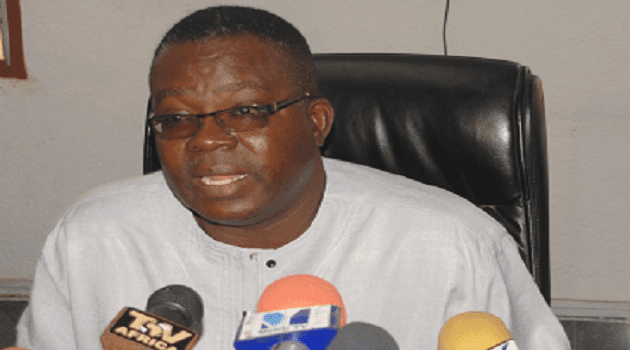President of the National Association of Graduate Teachers (NAGRAT), Angel Carbonu, has revealed that the association is not in favour of government going to the International Monetary Fund (IMF) for bailout.
According to him, internal discipline is the problem with the country and government does not need an “external headmaster” to compel it to be a disciplined manager of the economy. Commenting on whether the decision to go for a bailout changes government’s ability to pay COLA, Mr Carbonu noted that NAGRAT in the first place is “against the government going for a bailout” from the IMF.
“So, we are not in favour of the government going for IMF.”
Angel Carbonu
Mr Carbonu indicated that it is wrong to link the association’s call for COLA to government’s IMF bailout decision. He indicated that the Association’s call to government for COLA had begun months prior to the resolve by government to go to the Fund.
Additionally, Mr Carbonu noted that although his outfit may not be in favour of the IMF, the Association’s decision to strike is “reflecting the current economic situation and how it afflicts us; IMF or no IMF”.
“The TUC Secretary General on the May Day speech representing organized labour made that call before the President of the Republic to use his executive powers to grant COLA to public sector workers. So, to link our call to IMF is very wrong because until just about a few days, the government was still on high horse indicating its decision never to go to the IMF.”
Angel Carbonu
The NAGRAT President expressed that government has no reason to justify its inability to pay the COLA being demanded by public sector workers. He emphasized that the fact that government is going for IMF bailout should not stop government from fulfilling its obligation to its workers.
“… From the days of Jerry John Rawlings, we went for IMF bailout, President Kuffuor we went for IMF bailout, Atta Mills, we went for IMF bailout, John Mahama, we went for IMF bailout. Check all these regimes, they negotiated with labour and came out with increased salaries. So, the history does not support the argument that the moment you go for an IMF programme, you cannot determine wages based on the economic situation of your people…”
Angel Carbonu
GMA calls for effective ways of dealing with economic challenges
On his part, the General Secretary of the Ghana Medical Association, Dr Titus Beyuo, urged the government and the International Monetary Fund (IMF) to look for creative ways to solve Ghana’s problem rather than disadvantaging poor public workers as has been done in the past.
He revealed that the cutting down of public sector employees, the freezing of new employment and the inappropriate compensation of workers that have characterized previous IMF programmes will be resisted this time around.
Dr. Beyuo noted that per the data available, government is “spending more on interest payments than it is spending on wages”.
“So, if government and the IMF would only look at cutting down wage bill instead of looking at how to reduce the interest we’re paying, which will come from the fundamental question why are we borrowing so much? Why can’t we increase our own productivity so that we increase the GDP in this country and minimize the borrowing?”
Dr Titus Beyuo
READ ALSO: MP Attributes IMF Move To COVID And Russia-Ukraine War Impact



















